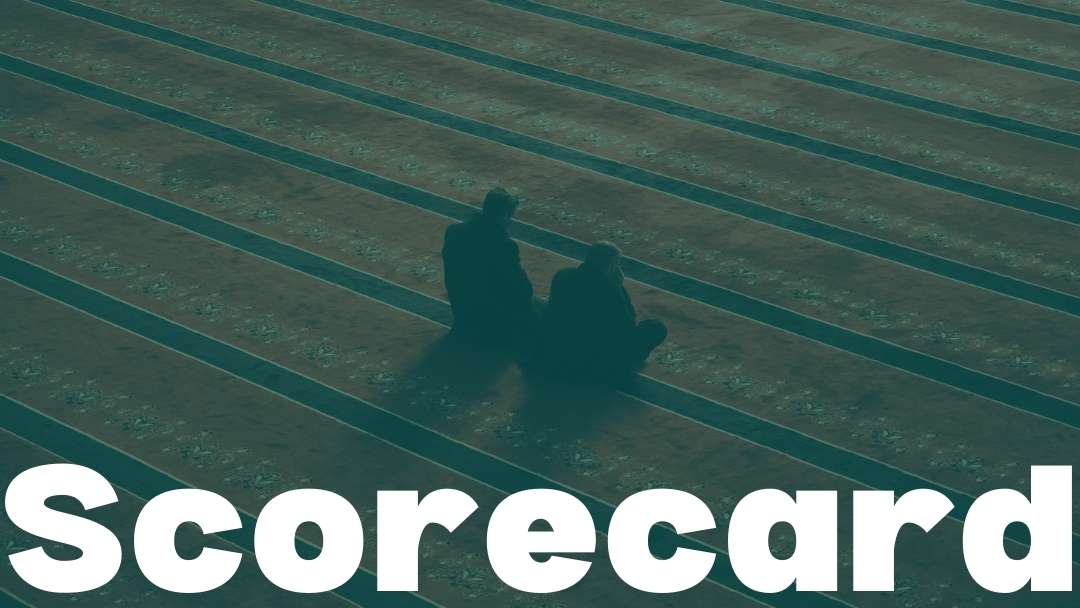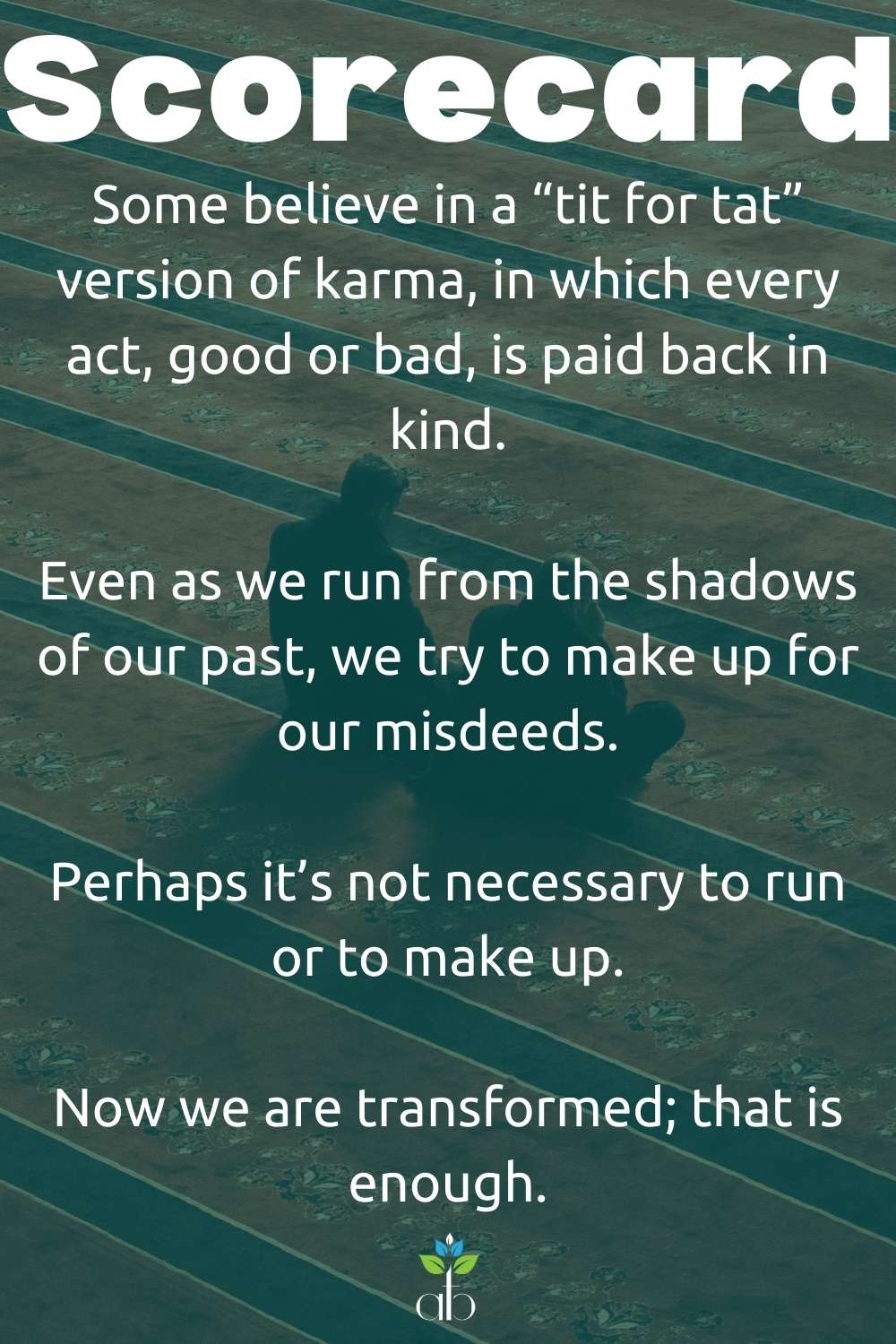Episode 464
There Is No Scorecard

The man in the hall said “Much of what I do is motivated by a desire to make up for the bad things I did in the past.” Many in the room stood up in the circle to show that they resonated strongly with what he’d said, that they too wanted to heal and let go of that part of themselves.
While we might not literally believe in a karmic scoreboard, it seems the thought can drive many of our actions. We want to offset our past mistakes with new deeds.
However, maybe we don’t need to do that. If we have reflected on the past, repented or decided to be a different person, now we are transformed.
That is more than enough.
Hosts & Guests
Kurt Robinson
Transcript
Welcome, beautiful thinkers!
I’d like to talk to you about this idea that there is no scorecard.
Many times we’re trying to make up for bad things that we did in the past.
In fact, I remember a couple of months back I was in Morelia for The Greater Reset, and my friend Kenny Palurintano did a little workshop with us, combining these different traditions to create this powerful synergy, this ceremony which culminated with a technique, a kind of healing.
I think he said it comes from a certain LGBT community in Oregon or something like this.
The liberated fairies, I don’t know what it was called.
But the the technique or the ritual, it goes something like this.
We’ll be standing in a circle or holding hands.
And someone will step inside the circle and say something that they want to heal or let go of.
Or, yeah, basically, that, let go, let go of this thing.
And Kenny said, “Okay, I’m going to begin.”
So, he entered the circle.
And he said, “So much of what I do, is motivated by trying to make up for the bad things I did in the past.”
And instantly, I felt it, right in my heart, right in my eyes.
I probably started weeping in that moment.
I stepped inside the circle with him.
And then what happens we face inside and focus on the healing, and then focus outside to the remainder of the people of the circle to know that we’re supported in our healing.
Now, very interesting to think about, there’s probably so many people that we respect, that have this motivation.
So many things that we did in the past that we still hold on to, at least a little bit.
I don’t think the universe is really keeping score.
I don’t think that there’s a “karma board”.
I don’t think things work quite like that.
I think it’s a bit different.
And the bad things that happen to us, or they seem like bad things, that might not necessarily be causally related.
It’s not like we are taking off boxes.
I don’t think it exactly works like that.
Or at least we don’t have to look at it like that.
So, sometimes I think about this concept.
People say in the Christian tradition, they say it’s not about deeds.
They say the thing that gets you into heaven, is accepting Jesus Christ in your heart as your Savior.
And this is kind of curious, because how does this work?
In an accounting sense, in numerical sense, we think, “Well hang on, how can a person be good?
Just by accepting one truth, one key truth that’s all it takes?
Doesn’t seem to make a lot of sense.
It doesn’t quite add up.
But the thing about this is, the reason it’s not about deeds is because, as I mentioned, in a previous episode, deeds to a God are like pieces, moves on a chessboard.
And those things are the very important things, the most important things.
The most important thing is what you are, what your being says.
And if you choose to be something greater in that moment, that is the moment that counts.
And that’s why we can have something like a deathbed confession or the priest comes to a man who is dying, and reads him his final rites, and the man has a a chance to repent.
And that is enough.
That moment makes up for anything.
Anything that you’ve done, because that moment speaks more clearly.
It says, that you realize the truth, that you embody that higher truth.
That is what really counts.
And I don’t think we need to worry too much about our past deeds.
My friend Josh Yee, of the Islamic tradition, said to me once, he told me about the spiritual challenge that he had when he entered the mosque, or when he entered that spiritual tradition.
And he didn’t know what to do.
Because there are certain errors that he made along the way.
Even when he was joining that organization or joining the tradition, he was still, for example, he might have still been drinking or something like that.
And drinking alcohol.
And then he didn’t know what to do with these things.
And he would ask people at the mosque, his spiritual brothers.
“What do I do with this? Like, I made these mistakes? I knew I was wrong. I still did it.”
And they’re like, “Yeah, well, you know, that’s kind of just what happens, this is not such a big deal.”
And he came to the conclusion, searching diligently.
He said, “It’s basically like this, you look at those things and you say, sorry, or you repent in that moment, you think, wish I hadn’t done that.”
And that is enough.
So when it got clearly, and purely, he repented, and let those things go.
Ideally, once we do this, we might never have to think of those things again.
Now, our motivations don’t come as compensation for past actions.
Now, our motivations come purely, they come wholy, they come from that finest part of ourselves.
We do not have to compensate for anything, because we are already whole.
And what we give, we give completely.
There is no scorecard.
We are free.

New Episodes Every Weekday
11am Mexico City time
10 min episodes Monday - Thursday
1 h interview episode on Fridays
As an Amazon Associate I earn from qualifying purchases.
Stay Beautiful &
Stay Connected
